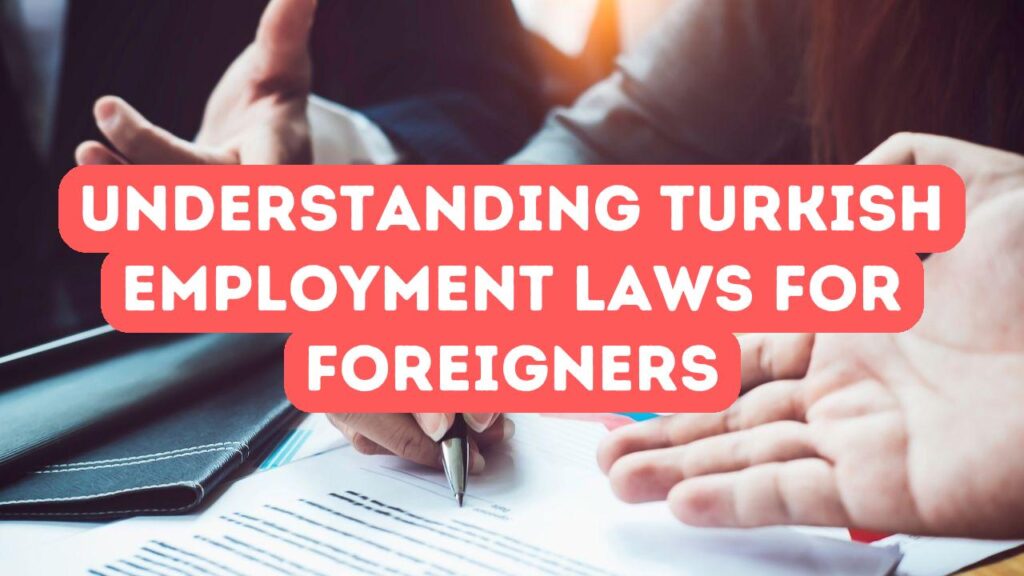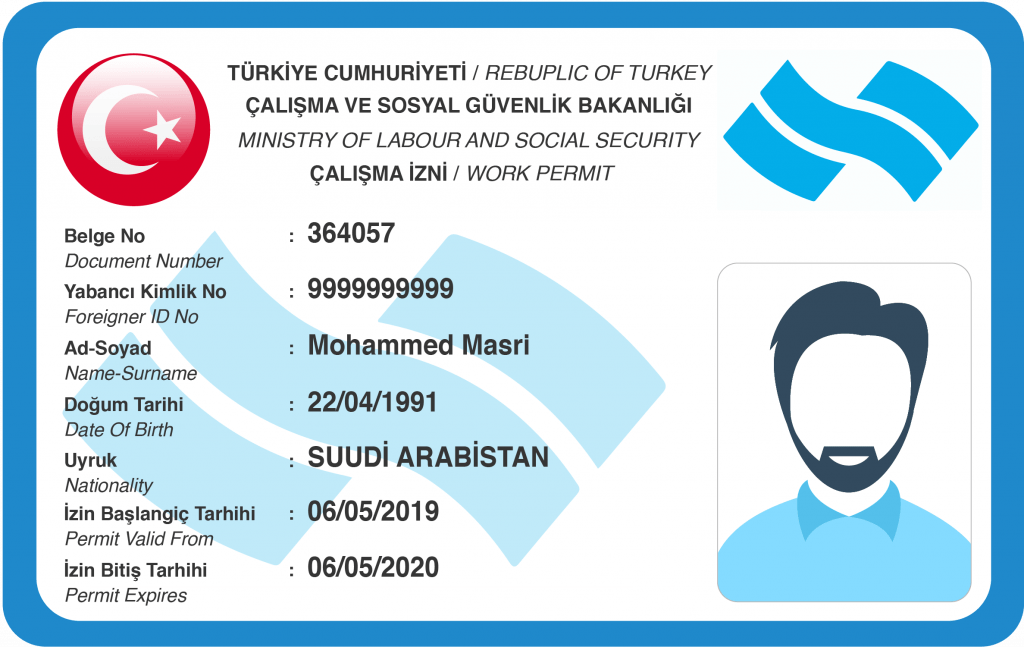Understanding Turkish employment laws can seem daunting, especially for foreign workers in Turkey. It’s crucial to grasp the essentials to ensure compliance and protect your rights. Turkey work permits are a primary step for expats wanting to join the local workforce. Navigating this process without proper knowledge can lead to unnecessary hurdles. Turkish employment laws not only safeguard your duties but also highlight labor rights in Turkey vital for your professional journey. These regulations ensure a fair work environment, safeguarding both employers and employees. For expats, understanding expat employment regulations means adapting to a new culture while feeling secure in professional undertakings. It’s akin to building a solid foundation before constructing a house; knowing the laws helps in establishing a thriving career in Turkey. Different rules apply to varying job sectors, so staying updated is key to a smooth transition and successful employment experience.
Navigating Work Permits and Residency Requirements
Acquiring Turkey work permits is a vital step for foreign workers in Turkey aiming to initiate their professional journey. The permits are your ticket to legal employment, ensuring compliance with Turkish employment laws. Unraveling this process might feel like navigating a maze, but understanding the requirements simplifies the path. Turkish labor law requires foreign workers to apply for a work permit alongside a residency permit, safeguarding labor rights in Turkey. These permits act as a safety net, protecting your career pursuits while embedding you into the Turkish workforce. Delays or missteps in this process could lead to setbacks, like missing a train by a whisker. Staying informed about expat employment regulations in Turkey not only paves the way for a successful career but also roots you firmly in your new professional landscape. Meticulous preparation and knowledge are key to unlocking a seamless transition.
Understanding the dance between Turkey work permits and residency requirements is crucial for foreign workers in Turkey. It’s much like trying to learn the steps to a new dance; once you’ve got the basics, the rest becomes more fluid. These permits are intertwined, working in tandem to ensure compliance with Turkish employment laws. To secure a work permit, an integral part of the process is obtaining a residency permit, a safeguard of labor rights in Turkey. These documents collectively form the backbone of expat employment regulations, ensuring job security. Think of them as your keys to open the doors of opportunity in Turkey. Failure to obtain both permits could result in a roadblock, halting your professional aspirations. Mastering this process sets the stage for a successful career, embedding you into the rich tapestry of the Turkish workforce. Preparation here isn’t just critical, it’s half the victory.
Securing Turkish employment laws compliance begins with recognizing how work permits and residency requirements interconnect. This is crucial for foreign workers in Turkey aiming for a seamless entry into the job market. Consider it akin to learning the chords before playing a melody; each part supports the next. Turkey work permits can’t be processed without a residency permit, both ensuring your integration into Turkish labor rights framework. The harmony between these documents means that navigating them shouldn’t be left to chance. Mastering their acquisition is like crafting the cornerstone of your career house, allowing your professional pursuits to stand strong in the Turkish work landscape. Keep in mind, without attention to expat employment regulations, your journey might take an unexpected detour. Stay vigilant, educate yourself, and you’ll find the keys to succeed, firmly unlocking the future of opportunities that lay ahead in Turkey.
Key Worker Rights and Employer Obligations
When diving into Turkish employment laws, understanding key worker rights and employer obligations is essential. Foreign workers in Turkey are entitled to labor rights, ensuring fair wages and safe working conditions. Employers, on the other hand, have obligations that align with Turkish statutes. Compliance with these laws is not just about adhering to regulations—it’s about fostering a respectful workplace. Turkey work permits often open doors to opportunity, yet they come with responsibilities like adhering to expat employment regulations. Many expats find the structure reassuring as it balances the scales between workers and employers. Such laws are not mere formalities; they are the backbone of a functional workplace. They ensure workers are protected, and that employers know their boundaries. By grasping these employment laws in Turkey, both parties can pave the way for a harmonious working relationship.
In a vivid tapestry woven with Turkish employment laws, employers and foreign workers in Turkey navigate a landscape rich with responsibilities and rights. Turkey work permits serve as the gateway, but understanding extends far beyond entry. Labor rights in Turkey lay the groundwork for employment, assuring fair treatment and a climate where expat employment regulations shine through. Employers must not only deliver fair wages but also respect working hours, offer leave, and maintain a safe environment. Imagine these laws as a dance; both parties must step in time to avoid a misstep. The commitment to these principles ensures a workplace where everyone knows their roles and boundaries are respected. It’s this clear, thoughtful structure that supports a thriving work culture, enabling foreign workers in Turkey and their employers to journey smoothly through the professional landscape, like sailors guided by the stars.
In deciphering the complex web of Turkish employment laws, one key element stands out: transparency. For foreign workers in Turkey, understanding their labor rights in Turkey ensures they’re not left in the dark regarding their entitlements. Employers must also embrace clarity when interpreting Turkey work permits and expat employment regulations. Proper documentation of work agreements, clear communication, and adherence to legal standards are non-negotiable. Picture these laws as a protective umbrella; it shields both parties from unexpected storms. Indeed, the laws outline worker rights, such as rest periods and overtime decisions, ensuring expats feel valued and safe. Employers find solace in guidelines that delineate their duties, paving a clear path for operations. Thus, these legally enforced practices foster mutual respect, crafting a workplace as harmonious as an orchestra where every instrument plays its part beautifully. This dance of rights and duties establishes a balanced professional environment for all.
Dispute Resolution and Legal Recourse for Foreign Employees
Navigating the legal waters as a foreign worker in Turkey can be challenging, especially when facing disputes. Turkish employment laws provide a framework for resolving workplace conflicts. First and foremost, open communication is encouraged, helping to address misunderstandings directly. When that isn’t sufficient, mediation services serve as a vital resource, bridging the gap between parties. Next step might be the labor courts, specifically designed to handle issues related to labor rights in Turkey. These venues ensure that foreign workers in Turkey have access to fair hearings, aligning with expat employment regulations. Turkey work permits also play a role; a valid permit is essential when presenting a case. It’s all about ensuring that every concerned foreign employee knows their rights and has access to the appropriate channels of resolution. Awareness and proactive engagement with these processes can save time and resources, ultimately making a world of difference in career fulfillment.
In Turkey, it’s essential for foreign workers to understand their rights and the dispute resolution resources available. Turkey work permits are more than just documentation; they symbolize a worker’s legal standing. Proper permits facilitate smoother dispute resolution, aligning foreign workers with Turkish employment laws. If conflicts arise, it’s paramount to first consult company protocols, as these often align with labor rights in Turkey. A robust knowledge of expat employment regulations empowers foreign employees to step forward confidently, asserting their rights. Turkish labor courts offer a formal avenue for grievances, supported by the legal framework of Turkish employment laws. Guidance from specialized legal advisors can be invaluable, ensuring foreign employees are well-prepared for such proceedings. This structured support helps foreign workers in Turkey navigate potential disputes, turning challenges into manageable hurdles, ensuring their employment rights remain intact.
Diving into the depths of Turkish employment laws, foreign workers in Turkey must be adept at handling disputes to safeguard their labor rights. Turkey work permits are crucial, not just for legal residency, but as powerful allies in navigating conflicts. If misunderstandings arise, initiating dialogue within the workplace can be akin to using a map to find alternative paths, often leading to amicable resolutions. When internal resolutions fall short, turning to Turkish labor courts can offer a structured legal pathway, rooted in expat employment regulations. These judicial avenues, though formal, are designed to protect labor rights in Turkey comprehensively. It’s not uncommon for foreign employees to feel lost, but enlisting the help of seasoned legal experts can transform these trials into guided voyages. With proper guidance, foreign workers can confidently address disputes, ensuring that their rights under Turkish employment laws stand firm.






